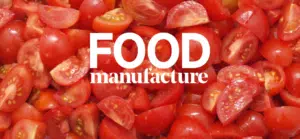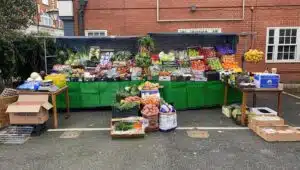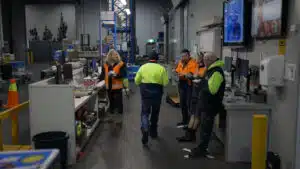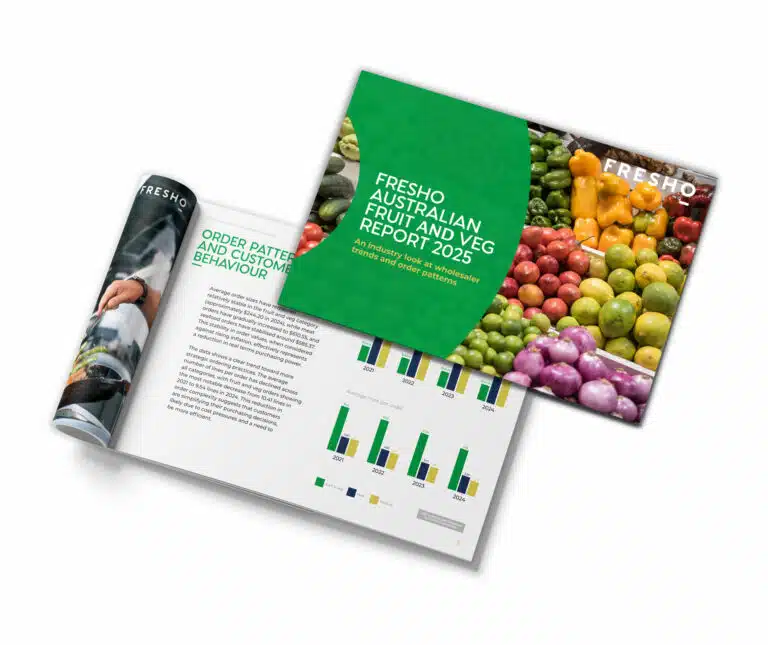Hundreds of millions of people worldwide now buy their groceries online, sourcing the food and drink they need to feed their families more cheaply and efficiently than ever before. Australian start-up Fresho, which is today announcing a $10 million Series A investment round, thinks professional chefs in restaurants, hotels and other venues should be doing exactly the same.
“There is a huge opportunity to digitise the supply chain for the food industry,” says Huw Birrell, managing director of Fresho, who co-founded the business with James Andronis. The company started out working with the food sector in Australia and New Zealand, but launched in the UK last year, and also has a fledgling operation in the US.
So far, Fresho has signed up 38,000 food service venues across these four markets, giving them access to an online food ordering platform that works in much the same way as online supermarkets’ websites, but tailored for the needs of professional buyers, with a focus on fresh foodstuffs.
Chefs get access to suppliers’ live prices, full details of their stock, and information on any special offers, and can then place an order for their exact requirements, to be fulfilled the following morning.
“Chefs work incredibly hard and in very stressful conditions,” says Birrell. “Often, they’re coming off service at the end of the evening and then placing their orders for the following day late at night.” Across much of the industry, it is standard practice to email orders to suppliers, he points out, but many chefs are still working by fax, or even leaving suppliers a voicemail message. The opportunity for any personal contact is very limited, since the working hours of chefs and suppliers – who start early in order to meet their customers’ orders – barely overlap.
The result has been frustration for all concerned. Chefs often have little idea of what suppliers have available; they also over-order in case some products turn out to be unavailable, leaving food wastage rates in some parts of the industry at 30-40%. For suppliers, meanwhile, the challenge is to process hundreds of orders that have been received in multiple formats. Plus they have no opportunity to offer special deals to enhance value in other ways – to highlight in-season produce, for example, or to offload excess stock.
Birrell says Fresho can solve all these difficulties. “We’re removing stress for both the venue and the supplier,” he says. “The chef gets live access to pricing, availability and special deals, while the supplier does not have to wade through hundreds of orders placed manually through different channels.”
The impact should be lower costs and greater efficiency for both venue and supplier. And with venues able to make much more precise orders based on a real-time view of what is available, wastage should fall too; that has obvious benefits from a sustainability perspective.
Until recently, the food sector has been slower than other industries to embrace new technology, but this changed during the Covid-19 pandemic, argues Birrell. Fresho saw rapid take-up of its platform in Australia and New Zealand, before launching into the UK last year to target a market that is three times’ larger.
British food businesses appear to be relishing the opportunity. Southampton-based supplier Adams Wholesales says its customers have been looking for online solutions for some time. “In only a couple of months, 60% or more of my customers are now ordering on Fresho,” says owner Ali Ahmet.
Now Fresho believes it can have a huge impact in the US. “Like our other markets, restaurants and suppliers in the US are itching to be more progressive but still working with antiquated processes,” says James Andronis. “B2B food supply chains are changing at a rapid rate around the world with an increased focus on efficiency and lowering waste.”
Hence the fund-raising, with investors’ cash earmarked for further enhancements to the company’s talent stack, expansion in the UK, and a major push into the US. The $10 million is coming from new investors including venture capital funds Capital Zed and Second Quarter Ventures, and the angel investor Andrew Sypkes, as well the firm’s existing investors, including Primorus Investments.
Looking forward, Birrell points to the size of the global opportunity, given that the food service business across the company’s four target markets is worth $412 billion. And Fresho also sees the potential for expanding its services. One exciting area is data analytics – by tracking market-wide information on what chefs and venues are buying, the firm will be in a strong position to alert suppliers to emerging trends and new areas of demand, Birrell points out.

Original article written by David Prosser
David Prosser is a Freelance journalist and consultant, and a former business editor of The Independent.










